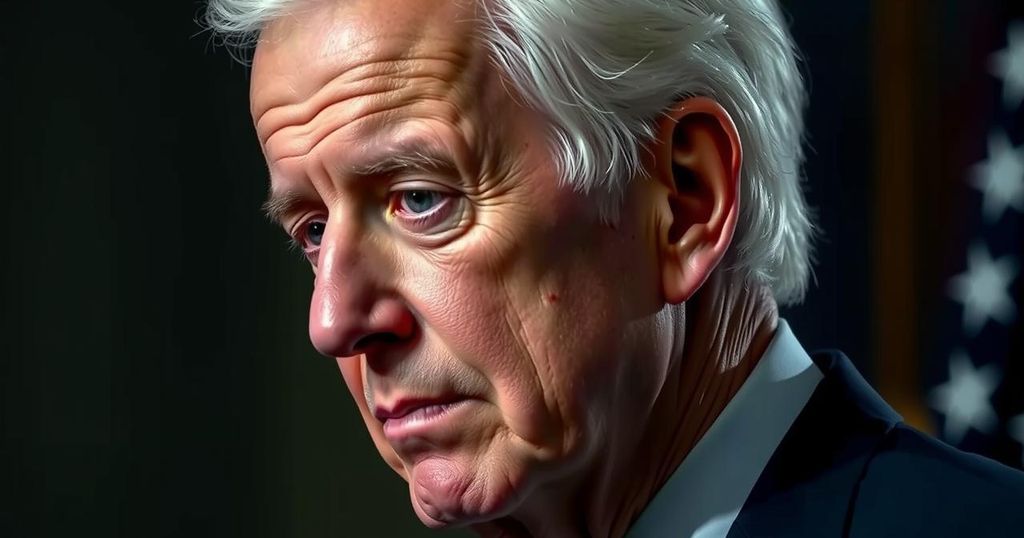Following the Democratic Party’s substantial defeat in the 2024 elections, President Joe Biden has remained notably silent, choosing not to extensively reflect on the implications of this loss. His reserved public presence during a recent trip to South America, coupled with a lack of media engagement, emphasizes a transition away from his prior more vocal leadership. Analysts suggest this may affect his legacy as the political landscape shifts towards new leadership with the Republican resurgence.
Since the Democrats’ significant loss in the recent elections, President Joe Biden has notably moderated his public presence. Despite previously warning against the repercussions of a potential Donald Trump resurgence, Biden has refrained from extensively commenting on the election’s outcome or addressing the implications for his party’s future. His brief remarks in the aftermath, emphasizing unity and civility among Americans, have failed to stimulate meaningful dialogue or introspection on his electoral defeat. Despite the deluge of concerns surrounding Trump’s return, Biden’s silence appears to underscore a transition, suggesting a readiness for new leadership that may chart a different political path.
During a recent South American visit, Biden limited his public commentary, leaving the explanation of crucial decisions to international allies. His restrained political discourse highlights a significant departure from his previous forthright engagements, raising questions about the impact of his silence on both domestic and global fronts. Experts like David Axelrod suggest that Biden’s choice to remain subdued in the wake of electoral loss might hinder his legacy, likening the situation to that of the former President Jimmy Carter.
Biden’s allies argue he requires time to process this recent defeat privately, understanding the need for an orderly transition while still confronting the impact of this electoral setback. His failure to conduct a news conference or answer media inquiries during international summits has intensified scrutiny over his absence from public dialogue, reflecting an ongoing narrative shift as international leaders like Emmanuel Macron and Justin Trudeau step forward. As he navigates these turbulent times, Biden’s reluctance to engage openly raises questions about his political future and that of the Democratic Party at large.
This article discusses President Joe Biden’s unexpected silence following the Democratic Party’s defeat in the 2024 elections. Despite previously expressing concern over a Trump presidency, Biden has not actively engaged with the media or the public to address the implications of the election results. Significant commentary from political analysts and historians suggests that this silence may have ramifications for his legacy and the Democratic Party’s future direction. The article reflects on Biden’s restrained public appearances, particularly during a recent trip to South America, as well as the reactions of his allies and opponents.
In conclusion, President Joe Biden’s pronounced silence following the electoral defeat of the Democratic Party marks a pivotal moment in his presidency. Analysts suggest that this reticence may impact his legacy and the party’s direction moving forward, signaling a transition of leadership that could redefine the political landscape in America. While Biden’s approach prioritizes a deliberate transition, it simultaneously illustrates a broader shift towards a new generation of leadership amid the ongoing challenges presented by a resurgent Republican Party.
Original Source: apnews.com






